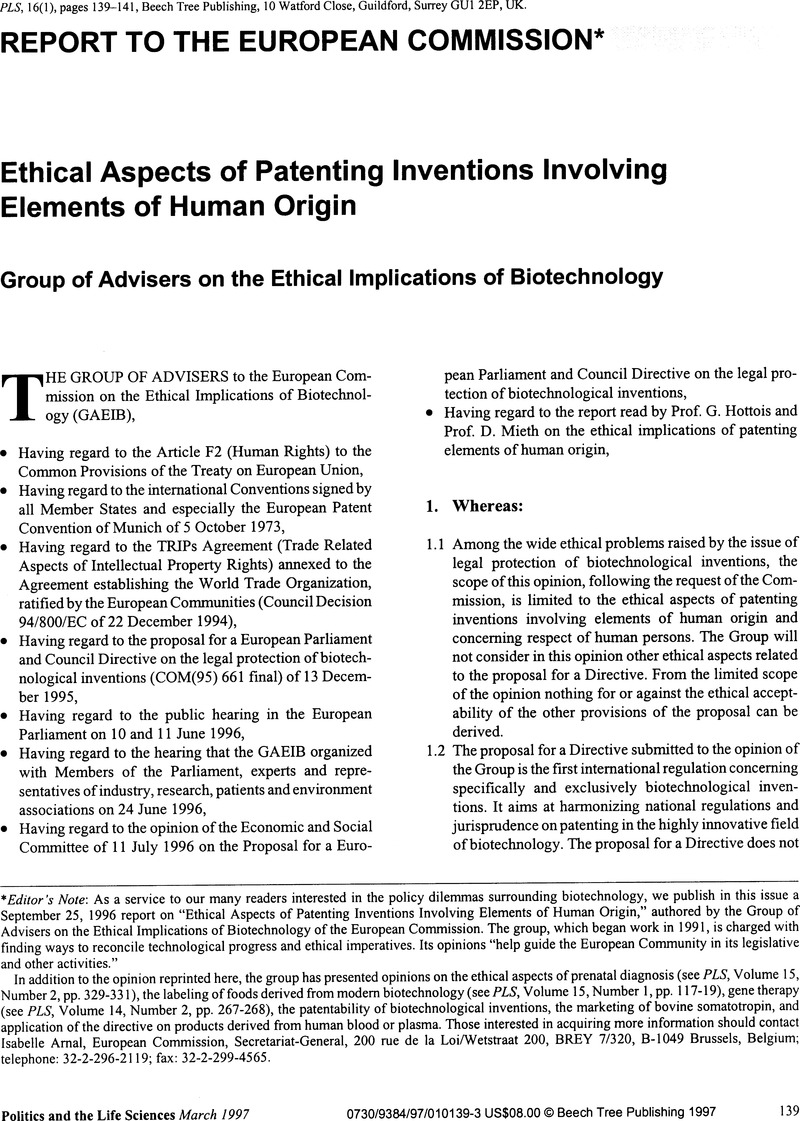Published online by Cambridge University Press: 17 May 2016

1. Professor Dietmar Mieth adopts the present opinion but considers that the point 2.5 be completed with the following text:Google Scholar
A patent can be granted on an innovation capable of industrial application, which relates to an element of human origin, like an isolated gene, if this element has been essentially changed. It is not essentially changed if the structure of the element is identical to an element (gene) to be found in the human body or if the genetic information is identical to the information of a human gene inside the human body. The granting of a patent is justified for an innovation that shows a new therapeutic application or use of a gene or a partial sequence of an even unchanged gene. In these cases—patent on process and patent on product—the need to encourage European research and the use of its results may outweigh other aspects. The patent must not cover the gene itself, but the specific identified use of the gene.Google Scholar